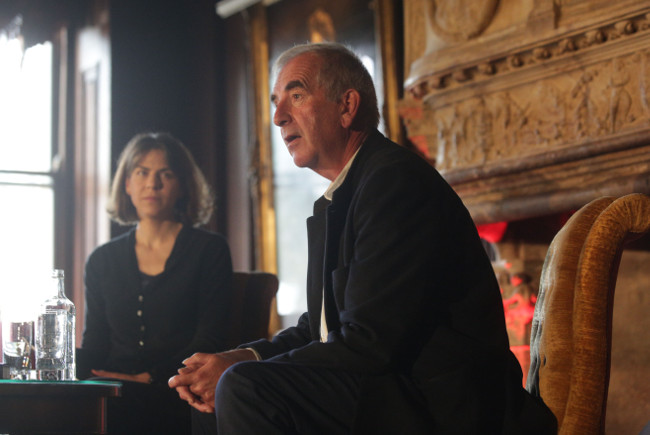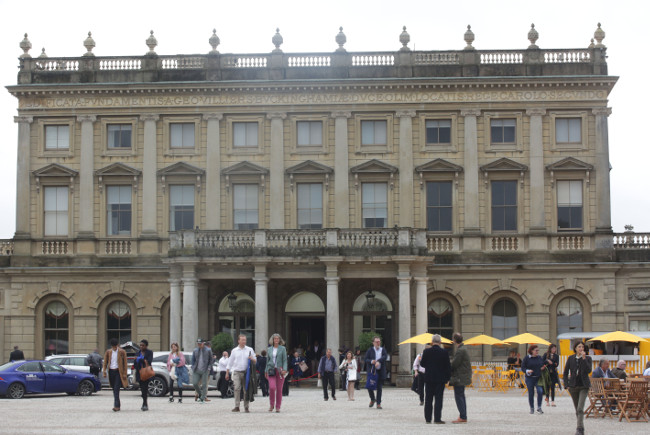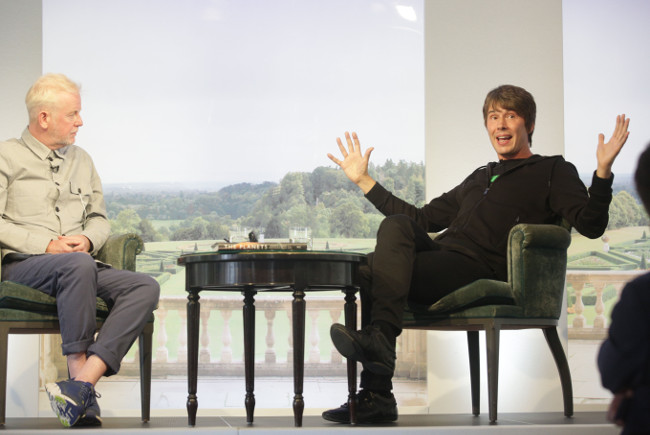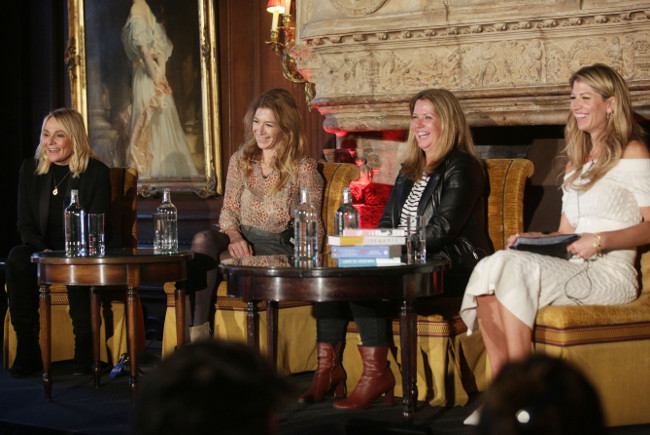What better way to spend an autumn weekend than exploring the latest literary titles and stocking up on great reads for the long winter nights ahead. In the world of literary festivals, Cliveden is modest in size but makes up for this in quality.
In October each year Cliveden House, a luxury country hotel in Berkshire, provides a stunning backdrop to an elegant and erudite festival where guests can enjoy some lively discussion, along with good food and wine.
Up close and personal
Under the guidance of a skilled interviewer more can be revealed about a writer and their work than a dust jacket. The popularity of literary festivals is also down to the access afforded to favourite authors without the intermediary of the media or a publisher. There is also the opportunity to discover some new writers and genres.
Spies, statesman, robots and sex
This year at Cliveden there were 21 talks from 45 speakers. Robert Harris, master storyteller, talked about his new book A Second Sleep set (spoiler alert) in the not too distant future. Harris admits that he always knows the outcome of his books from the beginning otherwise it would be ‘like telling a joke and not knowing the punchline’.

In conversation with Blanche Girouard, interviewer and writer, he admitted; ‘I wasn’t a good journalist… when I wrote my first novel, I knew I was a novelist’. When Blanche asked why he did not write sex scenes in his books claiming, ‘there’s flesh but nothing happening’. Harris shot back, ‘You’ve been talking to my wife’. These little moments of intimacy go a long way to explaining why festivals are popular.
Another celebrated writer, Ian McEwan, has also had robots on his mind lately. McEwan was talking to Gaby Wood about his science fiction novel A Machine Like Me (2019) depicting an alternative 1980s Britain in which Alan Turing is still alive and the first synthetic human ever created is living in a ménage a trois.
‘When robots create the next generation of robots what will be the purpose of human beings?’ asks McEwan. His claim that human beings already have anthropomorphic tendencies struck a chord with the audience. ‘If you kick the car in frustration,’ he asked,’ isn’t that an emotional relationship with a piece of machinery?’

Swiss-born British philosopher, author, and co-founder of The School of Life, Alain de Botton, is a fast-talking and erudite lecturer. At the festival to promote The School of Life; Emotional Education (2019) featuring an introduction by Botton, he believes that emotional intelligence is ‘arguably the single most important skill for surviving in the modern world’. Further, he drew an appreciative wave of laughter when he assured the room that ‘if you sometimes feel like an idiot’ in certain situations, not to worry as ‘we’re all idiots’ from time to time.
Disappointingly for this writer, Eric Idle, former member of Monty Python, was a last minute cancellation but despite being missed there was plenty of entertainment in store.
A life of adventure
British politician Rory Stewart is engaging and a flamboyant raconteur. In conversation with Simon Sebag Montefiore he recounted tales from his childhood spent in Hong Kong and Malaysia and a brief time in the British Army and the Foreign Office.
During his notable career Stewart’s father, Brian Stewart, was the second-most senior officer in M16. Rory Stewart appears to have inherited this spirit of adventure and in 2002 completed an incredible six-thousand-mile walk from Turkey to Bangladesh, the subject of his book The Places in Between (2004).

Tough choices
Talks and lectures take place either in The Arts Club Stage marquee or in The Great Hall inside Cliveden House. Rather than stagger the sessions, timings co-incide and having to carefully plan the day results in some serious decision-making over which speakers you will be able to bear missing out on. Once a talk begins there are strict rules against lecture-hopping.
Unlike the more established festivals, there are no queues at Cliveden worth mentioning and with half an hour between talks there is plenty of time for refreshments. As the festival ‘arena’ is a compact area there is none of the rushing from venue to venue common at larger events. Then again, Cheltenham Literary Festival is spread over various locations and a longer period, providing the opportunity to explore the beautiful Regency city.
Cliveden provides an intimate environment and while speakers sign their books in the bookshop there is an opportunity to chat briefly with authors.

Too many to mention the entire programme here, further speakers included: Professor Brian Cox in conversation with Chris Evans on Infinite Galaxies; Sir Richard Dearlove talked with Festival president, Andrew Roberts on Spooks and Shadows: Master of Intelligence; popular English novelist Kate Mosse chaired a panel on The Art Of The Novel.
Writer and editor, Tina Brown, CBE, was in conversation about Fatal Lullabies with writer and journalist, Leila Slimani. Natalie Livingstone, festival chairman, also chaired a discussion on Heroine Chic with a panel including Helen Fielding, author of Bridget Jones’s Diary, Paula Byrne and Kate Weinberg.
A glass of bubbly
Sparkling refreshment was provided by festival sponsors Veuve Clicquot in their iconic Airstream. Delicious food was provided by Rolling Dough Pizza, Bey Roots and the festival Peardrop Café. For guests staying at Cliveden there is the opportunity to have lunch in the Spa Kitchen or Astor Grill & Courtyard situated in the old stable block, the latter offering relaxed dining with a mixture of classic American and British dishes.
Photography courtesy of Cliveden Literary Festival





















